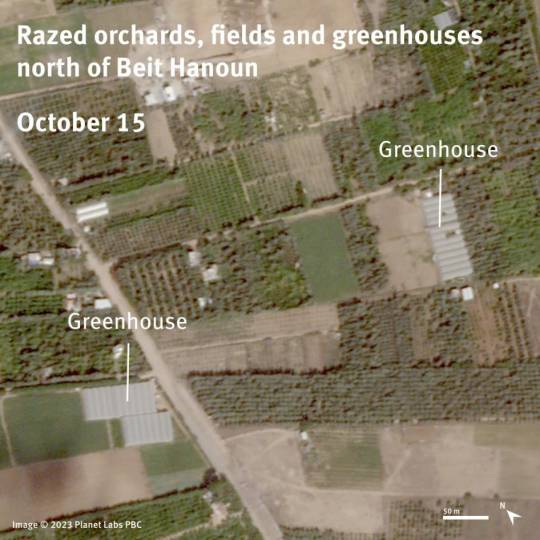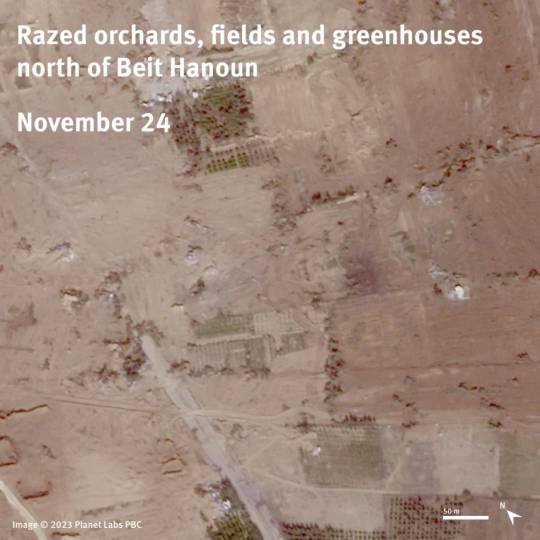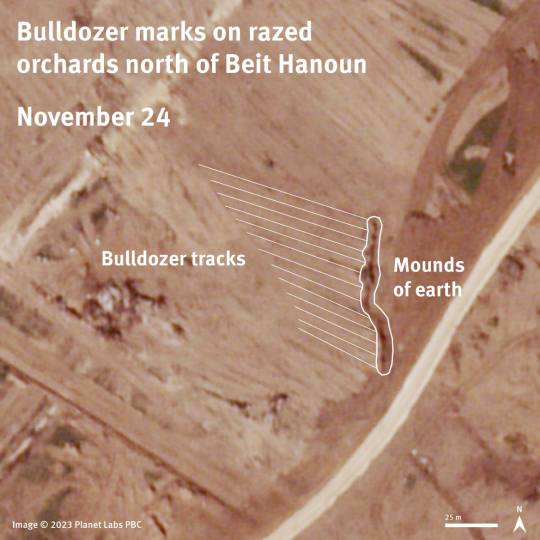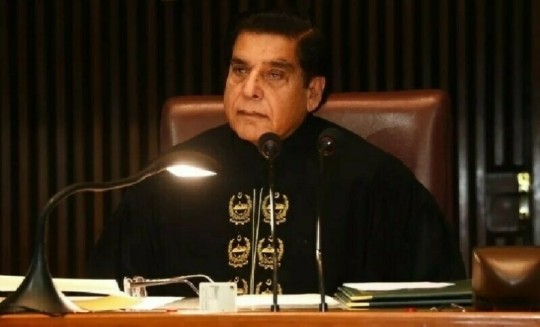#Ashraf Omar
Photo

Moon Knight - Created by Ashraf Omar
You can follow the artist on Instagram and Twitter.
176 notes
·
View notes
Photo

Iron Man by Ashraf Omar
72 notes
·
View notes
Text
For five days, the Israeli military had been drawing closer to the hospital, where hundreds of patients, including newborn babies, have gone without electricity and with little food as fighting raged around them.
Witnesses told Reuters that tanks entered the complex at 3am and that one parked in front of the emergency department. Mohammed Zaqout, the director of hospitals in the territory, said Israeli soldiers entered the emergency department and the surgery building, which also contains intensive care units. An official at the Hamas-run health ministry told AFP he could see “dozens of soldiers and commandos inside the emergency and reception buildings”.
Witnesses who spoke to the BBC and AFP said Israeli soldiers used loudspeakers to demand that all males aged between 16 and 40 leave every part of the hospital complex other than the surgical and emergency wings and enter the hospital courtyard.
“All men 16 years and above, raise your hands,” a soldier shouted in accented Arabic, according to a journalist speaking to AFP. “Exit the building towards the courtyard and surrender,” the soldier ordered.
About 1,000 Palestinian males, their hands above their heads, were soon led into the vast hospital courtyard, some of them stripped naked by Israeli soldiers checking them for weapons or explosives, the journalist said.[...]
The Israeli army released video showing soldiers carrying boxes labelled “baby food” and “medical supplies”.
A spokesperson for the Palestinian ministry of health in Gaza, Ashraf al-Qudra, told Al Jazeera Arabic that “only doctors, patients and displaced people” were present when Israeli forces entered the hospital’s emergency department. “We have nothing to be afraid of or hide,” he said.
Omar Zaqout, who works in the emergency room at al-Shifa, told Al Jazeera that Israeli soldiers had detained and assaulted some men who had taken refuge there. “[They] did not bring any aid or supplies, they only brought terror and death,” he said.[...]
The Israeli authorities have long maintained that Hamas uses the area below the hospital as a command centre. Hamas and hospital staff deny this.
The IDF said in a briefing that soldiers found “weapons and other terror infrastructure,” at al-Shifa, and that they had seen “concrete evidence that Hamas terrorists used the Shifa hospital as a terror headquarters,” which they intended to publish later.
Hamas said the IDF’s claims were “nothing but a continuation of the lies and cheap propaganda, through which [Israel] is trying to give justification for its crime aimed at destroying the health sector in Gaza”.
The raid continued well into the afternoon, though details were scant due to a widespread telecommunications blackout[...]
The head of the World Health Organization, Tedros Adhanom Ghebreyesus, said his organisation had lost contact with medics inside al-Shifa.
In the late afternoon, Boursh told Al Jazeera that Israeli troops were still present in the hospital. “They are still here … patients, women and children are terrified,” he said. He said the medical staff had vowed to stay with their patients “till the end.”[...]
Boursh told the Guardian that some who attempted to flee al-Shifa earlier this week were surrounded by gunfire as they left the hospital grounds, and turned back.
The Palestinian health ministry said 40 patients died on Tuesday, after five days without the fuel needed to power generators that fed dialysis machines and other vital medical equipment. The hospital had also run out of clean water, and doctors said they were subsisting on dates to survive as food supplies dwindled to nothing.
Corpses were piled in front of the hospital, with staff too terrified to move between buildings. The UN’s office for humanitarian affairs said staff at al-Shifa, for decades the linchpin of Gaza’s medical system, had begun preparations for a mass grave to entomb 180 bodies in front of the facility, as there was no way for them to leave in order to bury the dead.
15 Nov 23
2K notes
·
View notes
Text
Resources Part 19
Masterpost - Donate if you can, otherwise Please Share! Every Dollar counts!
https://gofund.me/45f75a46
https://gofund.me/d2db3600
https://gofund.me/b96fa723 (https://www.paypal.com/paypalme/RAMZIZourob?fbclid=PAAab8kJquUXmTlpRWnv0IdB05KykCVqmI9nZgfVx0gN5k3ZA729mophX3yjw_aem_Afdrihxx3Ox34nz7B-Qz2V6LJM965rH7HjYc11ROXcxD_dKAURZ5eKE7vdpbJdSCfQ4)
https://gofund.me/0fa5ccbc
https://gofund.me/3b7afef5
https://gofund.me/3b7afef5
https://gofund.me/b99282a9
https://gofund.me/db85c453
https://gofund.me/ccc03bfa
https://gofund.me/4450f9ee
https://gofund.me/12140b2c
https://gofund.me/c433e0c7
https://gofund.me/2e4e1d9e
http://gofund.me/31b3b62
https://gofund.me/072ad2d1
https://gofund.me/75299cf0
https://gofund.me/427ba503
https://gofund.me/067beb56
https://gofund.me/64fd6853
https://gofund.me/71b904de
https://gofund.me/e449d1f0
https://gofund.me/fba8f9e7
https://gofund.me/072ad2d1
https://gofund.me/75299cf0
https://gofund.me/427ba503
https://gofund.me/067beb56
https://gofund.me/64fd6853
https://gofund.me/81977160
https://gofund.me/d5bca57a
https://gofund.me/8eda6700
https://gofund.me/4450f9ee
https://gofund.me/8e4a2c97
https://gofund.me/a8f4499f
https://gofund.me/072ad2d1
https://gofund.me/75299cf0
https://gofund.me/427ba503
https://gofund.me/067beb56
https://gofund.me/64fd6853
https://gofund.me/81977160
https://gofund.me/d5bca57a
https://gofund.me/8eda6700
https://gofund.me/4450f9ee
https://gofund.me/8e4a2c97
https://gofund.me/474f1737
https://gofund.me/5a28030e
https://gofund.me/6fd33b2c
https://gofund.me/072ad2d1
https://gofund.me/75299cf0
https://gofund.me/427ba503
https://gofund.me/067beb56
https://gofund.me/64fd6853
https://gofund.me/81977160
https://gofund.me/d5bca57a
https://gofund.me/8eda6700
https://gofund.me/4450f9ee
https://gofund.me/8e4a2c97
https://gofund.me/474f1737
https://gofund.me/5a28030e
http://gofundme.com/f/hometaxsd
https://gofund.me/50ce7d27
http://Paypal.me/hometax
launchgood.com/FTFYemenSyriaPalestine
http://revolut.me/hussiiii
https://gofund.me/b6bd6333
https://t.co/hH4AOcksmd
http://gofund.me/8f55755b
https://paypal.me/sajaalakad?country.x=SA&locale.x=ar_EG
http://Paypal.me/hometax
https://t.co/eHXcQ6k8n2
https://t.co/eJv7N0Ed0P
https://t.co/eJv7N0Ed0P
gofund.me/f49e5a5a
http://gofund.me/f49e5a5a
https://t.co/4OBbQjMttF
https://gofund.me/1dd912a4
https://t.co/XYQMFEDV06
gofund.me/059c6454
gofund.me/dd34d6dc
https://www.gofundme.com/f/lifeline-of-family-in-gaza-by-evacuating-them
https://gofund.me/f1cbe2eb
https://www.gofundme.com/f/save-my-kids-and-evacuate-them-from-gaza
https://t.co/ruC99AZu7C
https://t.co/SnQMgM0axq
https://t.co/1ikdtCP0Lc
http://paypal.me/Taysir231
https://t.co/ub73rLIEfR
https://t.co/zxQOz2p1c3
https://gofund.me/69e14222
https://gofund.me/8016a1c6
https://gofund.me/fcc72694
https://gofund.me/29b75671
https://gofund.me/23012c3a
https://gofund.me/4ee75026
https://gofund.me/da873ba1
#free palestine#palestine#free gaza#save palestine#gaza strip#from the river to the sea palestine will be free#gaza genocide#save gaza#palestine news#gaza#share#news on gaza#donate#humanitarian aid#social justice#stand with palestine#aid#gaza news#support palestine#gaza donation#palestine donation#donation link#donation links#aid for palestine#aid palestine#direct aid#palestine aid#aid for gaza#Gaza aid#mutual aid
15 notes
·
View notes
Text
Dr Omar Hassouna, who moved to Walsall, [England,] said he found out in a phone call from his brother on Tuesday [17 October].
His niece, her husband and their two-month-old baby "instantly died" after a wall fell on them when they were sleeping, he said.
Dr Hassouna said his brother "just could not speak" and it was "very, very upsetting".
"She was very close to me personally," he added. "I just cried today, so incredibly unbelievable."
Dr Hassouna has lived in Walsall for more than 40 years but recently visited Gaza to see his family.
He said the current situation was "very frightening" and his family were "not sure whether [they're] going to live tomorrow or not."
"These people, they don't know where to go," he added.
-- From "Walsall doctor says relatives killed in bombardment in Gaza" by Shehnaz Khan, Chris Blakemore, and Rakeem Omar for BBC News, 18 Oct 2023.
On 26 October, the Palestinian Ministry of Health released the list of names of Palestinians killed since 7 October. Among them, from the Hassouna family, are:
Najia Abdel Ismail (86);
Nima Ahmed Ahmed (71);
Subha Ibrahim Mustafa (67);
Sharif Atta Ibrahim (61) and his brothers Imad Atta Ibrahim (59) and Bassam Atta Ibrahim (51);
Hani Issa Saeed (59);
Ali Hassan Abdel Rahman (59) and his children Raed Ali Hassan (36), Isra Ali Hassan (34), Alaa Ali Hassan (32), Mumin Ali Hassan (28), and Ibrahim Ali Hassan (25);
Ali's son Hassan Ali Hassan (37) and his children Ahmad Hassan Ali (11), Bara'a Hassan Ali (9), and Joud Hassan Ali (7);
and Ali's son Muhammad Ali Hassan (33) and his sons Ali Muhammad Ali (7) and Yazan Muhammad Ali (5);
Nelly Hamdy Mohamed (52);
Saleh Ali Saleh (50) and his children Muhammad Saleh Ali (27), Nesma Saleh Ali (25), Basma Saleh Ali (21), and Sarah Saleh Ali (15);
and Saleh's son Khalid Saleh Ali (29) and his daughter Nevin Khalid Saleh (1);
Samar Khalil Hussein (48);
Navin Jamil Mahmoud (48);
Samiha Naim Fahmy (44);
Hossam Amin Muneeb (44), his wife, Hala Yasir Faris (36), and their children Ahmad Hossam Amin (12), Aya Hossam Amin (8), and Adam Hossam Amin (3);
Samah Naim Hosni (39);
Rawa Riyad Mustafa (38);
Muhammad Jamal Mustafa (35);
Ayah Basim Faraj (34);
Ilham Khalil Ramadan (34) and their sister Amirah Khalil Ramadan (32);
Hanin Muhammad Ibrahim (33);
Nahil Nasser Muhammad (32);
Rim Nahed Jamal (30);
Abdul Rahman Muhammad Fadl Hamed (27) and his siblings Muhammad Muhammad Fadl Hamed (22), Abdullah Muhammad Fadl Hamed (13), and Hoda Muhammad Fadl Hamed (8);
Shadi Suhail Saeed (27);
Mustafa Mahmoud Khaled (26);
Safaa Nizar Jamil (26);
Ahmed Majdi Ahmed (26);
Ayah Khamis Atta (25);
Rose Ramiz Amin (21) and her sister Maha Ramiz Amin (18);
Abdul Rahman Muhammad Mutee (17);
Lamah Ahmed Mahmoud (13);
Malak Bilal Muhammad (12) and his siblings Muhammad Bilal Muhammad (11) and Sarah Bilal Muhammad (3);
Samer Ahmed Muhammad (10) and his sisters Jana Ahmed Muhammad (8) and Mona Ahmed Muhammad (6);
Muhammad Rami Muhammad Fadl (10) and his siblings Yazan Rami Muhammad Fadl (8), Samar Rami Muhammad Fadl (6), Youssef Rami Muhammad Fadl (5), Abdullah Muhammad Fadl (4), and Sowar Rami Muhammad Fadl (1);
Nour Wissam Amin (9) and her sister Nada Wissam Amin (7);
Sherif Ashraf Sherif (5);
Sobhi Hamdan Sobhi (1);

Adham (41), a freelance journalist and media professor;
Khalid Younis Saleh (33);
and Abdullah Ahmed Salim (32).
You can read more about the human lives lost in Palestine on the Martyrs of Gaza Twitter account and on my blog.
3 notes
·
View notes
Text

People line up for bread at a partially collapsed but still operational bakehouse in Nuseirat refugee camp in Deir al Balah, Gaza, Ashraf Amra/Anadolu via Getty Images
The Israeli government is using starvation of civilians as a method of warfare in the Gaza Strip, which is a war crime.
Israeli officials have made public statements expressing their aim to deprive civilians in Gaza of food, water, and fuel – statements reflected in Israeli forces’ military operations.
The Israeli government should not attack objects necessary for the survival of the civilian population, lift its blockade of the Gaza Strip, and restore electricity and water.
(Jerusalem) – The Israeli government is using starvation of civilians as a method of warfare in the occupied Gaza Strip, which is a war crime, Human Rights Watch said today. Israeli forces are deliberately blocking the delivery of water, food, and fuel, while willfully impeding humanitarian assistance, apparently razing agricultural areas, and depriving the civilian population of objects indispensable to their survival.
Since Hamas-led fighters attacked Israel on October 7, 2023, high-ranking Israeli officials, including Defense Minister Yoav Gallant, National Security Minister Itamar Ben-Gvir, and Energy Minister Israel Katz have made public statements expressing their aim to deprive civilians in Gaza of food, water and fuel – statements reflecting a policy being carried out by Israeli forces. Other Israeli officials have publicly stated that humanitarian aid to Gaza would be conditioned either on the release of hostages unlawfully held by Hamas or Hamas’ destruction.
“For over two months, Israel has been depriving Gaza's population of food and water, a policy spurred on or endorsed by high-ranking Israeli officials and reflecting an intent to starve civilians as a method of warfare,” said Omar Shakir, Israel and Palestine director at Human Rights Watch. “World leaders should be speaking out against this abhorrent war crime, which has devastating effects on Gaza’s population.”
Human Rights Watch interviewed 11 displaced Palestinians in Gaza between November 24 and December 4. They described their profound hardships in securing basic necessities. “We had no food, no electricity, no internet, nothing at all,” said one man who had left northern Gaza. “We don’t know how we survived.”
In southern Gaza, those interviewed described the scarcity of potable water, the lack of food leading to empty shops and lengthy lines, and exorbitant prices. “You are on a constant search for things needed to survive,” said a father of two. The United Nations World Food Programme (WFP) reported on December 6 that 9 out of 10 households in northern Gaza and 2 out of 3 households in southern Gaza had spent at least one full day and night without food.
International humanitarian law, or the laws of war, prohibits the starvation of civilians as a method of warfare. The Rome Statute of the International Criminal Court provides that intentionally starving civilians by “depriving them of objects indispensable to their survival, including willfully impeding relief supplies” is a war crime. Criminal intent does not require the attacker’s admission but can also be inferred from the totality of the circumstances of the military campaign.
In addition, Israel’s continuing blockade of Gaza, as well as its more than 16-year closure, amounts to collective punishment of the civilian population, a war crime. As the occupying power in Gaza under the Fourth Geneva Convention, Israel has the duty to ensure that the civilian population gets food and medical supplies.
On November 17, the WFP warned of the “immediate possibility” of starvation, highlighting that supplies of food and water were practically non-existent. On December 3, it reported a “high risk of famine,” indicating that Gaza’s food system was on the brink of collapse. And on December 6, it declared that 48 percent of households in northern Gaza and 38 percent of displaced people in southern Gaza had experienced “severe levels of hunger.”
On November 3, the Norwegian Refugee Council announced that Gaza was grappling with “catastrophic water, sanitation, and hygiene needs.”Wastewater and desalination facilities were shut down in mid-October due to fuel and electricity shortages and have been largely inoperable since, according to the Palestinian Water Authority. Even before October 7, according to the UN, Gaza had virtually no potable water.
Prior to the current hostilities, 1.2 million of Gaza’s 2.2 million people were estimated to be facing acute food insecurity, and over 80 percent were reliant on humanitarian aid. Israel maintains overarching control over Gaza, including over the movement of people and goods, territorial waters, airspace, the infrastructure upon which Gaza relies, as well as the registry of the population. This leaves Gaza’s population, which Israel has subjected to an unlawful closure for 16 years, almost entirely dependent on Israel for access to fuel, electricity, medicine, food, and other essential commodities.
After the imposition of a “total blockade” on Gaza on October 9, Israeli authorities resumed piping water to some parts of southern Gaza on October 15 and, as of October 21, allowed limited humanitarian aid to arrive through the Rafah crossing with Egypt. Israeli Prime Minister Benjamin Netanyahu said on October 19 that Israel would not allow humanitarian assistance “in the form of food and medicines” into Gaza through its crossings “as long as our hostages are not returned.”
The government continued to block the entry of fuel until November 15, despite warnings about the serious consequences of doing so, leading to the shutdown of bakeries, hospitals, sewage pumping stations, water desalination plants, and wells. These facilities, which have been left unusable, are indispensable to the civilian population’s survival. Although limited amounts of fuel were subsequently allowed in, on December 4, the UN Humanitarian Coordinator for the Occupied Palestinian Territory, Lynn Hastings, called it “utterly insufficient.” On December 6, Israel’s war cabinet approved a “minimal” increase in fuel supplies to southern Gaza.
On December 1, immediately after the seven-day ceasefire, the Israeli military resumed bombing Gaza and expanded its ground offensive, stating that its military operations in the south would carry “no less strength” than in the north. While United States officials said that they urged Israel to allow fuel and humanitarian aid to enter Gaza at the same levels observed during the ceasefire, the Defense Ministry’s coordinator of government activities in the territories said on December 1 that it halted all aid entry. Limited aid deliveries resumed on December 2, but still at grossly insufficient levels, according to the UN Office for the Coordination of Humanitarian Affairs (OCHA).
Alongside the crushing blockade, the Israeli military’s extensive airstrikes in the strip have resulted in widespread damage or destruction to objects necessary for the survival of the civilian population.
UN experts said on November 16 that the significant damage “threatens to make the continuation of Palestinian life in Gaza impossible.” Notably, Israeli forces’ bombing of Gaza’s last operational wheat mill on November 15 ensures that locally produced flour will be unavailable in Gaza for the foreseeable future, as highlighted by OCHA. Additionally, the UN Office for Project Services (UNOPS) said that the decimation of road networks had made it more difficult for humanitarian organizations to deliver aid to those who need it.
“Bakeries and grain mills have been destroyed, agriculture, water and sanitation facilities,” Scott Paul, a senior humanitarian policy adviser for Oxfam America, told the Associated Press on November 23.
Israel’s military actions in Gaza have also had a devastating impact on Gaza’s agricultural sector. The sustained bombardment, coupled with fuel and water shortages, alongside the displacement of more than 1.6 million people to southern Gaza, has made farming nearly impossible, according to Oxfam. In a report from November 28, OCHA said that livestock in the north are facing starvation due to the shortage of fodder and water, and that crops are increasingly abandoned and damaged due to lack of fuel to pump irrigation water. Existing problems, such as water scarcity and restricted access to farming land near the border fence, have compounded the difficulties faced by local farmers, many of whom are displaced. On November 28, the Palestinian Central Bureau of Statistics said that Gaza is suffering from at least a US$1.6 million daily loss in farm production.
On November 28, the Palestine Food Security Sector, led by the WFP and the Food and Agriculture Organization, reported that over a third of agricultural land in the north had been damaged in the hostilities. Satellite imagery reviewed by Human Rights Watch indicates that since the start of the Israeli military's ground offensive on October 27, agricultural land, including orchards, greenhouses, and farmland in northern Gaza, has been razed, apparently by Israeli forces.
The Israeli government should immediately cease using starvation of civilians as a method of warfare, Human Rights Watch said. It should abide by the prohibition on attacks on objects necessary for the survival of the civilian population and lift its blockade of the Gaza Strip. The government should restore water and electricity access, and allow desperately needed food, medical aid, and fuel into Gaza, including via its crossing at Kerem Shalom.
Concerned governments should call on Israel to end these abuses. The United States, the United Kingdom, Canada, Germany, and other countries should also suspend military assistance and arms sales to Israel as long as its forces continue to commit widespread and serious abuses amounting to war crimes against civilians with impunity.
“The Israeli government is compounding its collective punishment of Palestinian civilians and the blocking of humanitarian aid by its cruel use of starvation as a weapon of war,” Shakir said. “The deepening humanitarian catastrophe in Gaza calls for an urgent and effective response from the international community.”
Background
The Hamas-led attacks in southern Israel on October 7 killed at least 1,200 Israelis and foreign nationals, with more than 200 people taken hostage, acts amounting to war crimes. The resulting Israeli bombardment and ground offensive resulted in more than 18,700 Palestinians killed, including more than 7,700 children, according to Gaza authorities.
OCHA reported that by December 10, the Israeli military’s bombardment of the Gaza strip had destroyed more than half of the civilian infrastructure in Gaza, including more than 50,000 housing units, as provided by the Ministry of Public Works and Housing in Gaza, as well as hospitals, schools, mosques, bakeries, water pipes, sewage, and electricity networks. On November 4 and 5 alone, according to OCHA, seven water facilities across the Gaza Strip were directly hit and sustained major damage, including water reservoirs in Gaza City, the Jabalia refugee camp, and Rafah.
The Israeli military’s repeated, apparently unlawful attacks on medical facilities, personnel, and transport are further destroying Gaza’s healthcare sector, thereby affecting the population’s ability to access life-saving treatment, including to prevent diseases, wasting, and deaths linked to malnutrition, exacerbating the dire ramifications of starvation. “We will see more people dying from disease than from bombardment if we are not able to put back together this health system,” the World Health Organization's Margaret Harris said on November 28.
Humanitarian Consequences
On October 13, Israeli authorities issued an order for more than a million people to evacuate northern Gaza within 24 hours – an order that was impossible to comply with. Since then, and as conditions in the north worsened, hundreds of thousands have been displaced to Rafah and Khan Younis governorates in the south, where it has become increasingly difficult to secure the means to survive. Under international humanitarian law, evacuations must be carried out under conditions that ensure those displaced have access to unimpeded humanitarian aid, including sufficient food and work, otherwise they may amount to forcible displacement. Evacuations that would increase the likelihood of starvation are prohibited.
The humanitarian consequences of Israel’s military actions in Gaza have been severe. During the first eight weeks of hostilities, northern Gaza was the focus of the Israeli military’s intense air and, later, ground offensive. Except for the seven-day ceasefire that began on November 24, during which UN convoys brought in limited quantities of flour and high-energy biscuits, aid access to the north had been largely severed. Between November 7 and at least November 15, none of the bakeries in the north were operational due to the lack of fuel, water, wheat flour, and structural damage, according to OCHA.
According to the WFP, there is a serious risk of starvation and famine in Gaza. UN officials have said that 1.9 million people, over 85 percent of Gaza's population, are internally displaced, adding that the conditions in an ever-shrinking southern area of the Gaza strip could become “even more hellish.”
UN aid chief Martin Griffiths stated on December 5 that the Israeli military campaign in southern Gaza had led to “apocalyptic” conditions, making meaningful humanitarian operations impossible.
As of December 6, the only water desalination plant in northern Gaza was nonfunctional and the pipeline supplying water to the north from Israel remained closed, increasing the risk of dehydration and waterborne diseases arising from the consumption of water from unsafe sources. Hospitals have been particularly hard hit, with only 1 of 24 hospitals in northern Gaza functional and able to admit new patients, although services are limited, as of December 14.
Across Gaza, the humanitarian crisis deepened with a persistent electricity blackout since October 11 as well as several communications shutdowns that denied people access to reliable safety information, emergency medical services, and severely hindered humanitarian operations, with OCHA saying on November 18 that the telecommunications blackout between November 16 and 18, the fourth such blackout since October 7, “brought the already challenging delivery of humanitarian assistance to an almost complete halt, including life-saving assistance to people injured or trapped under the rubble as a result of airstrikes and clashes.” Another telecommunications blackout took place on December 14.
Since the beginning of the Israeli military’s ground offensive on October 27, satellite imagery reviewed by Human Rights Watch indicates that orchards, greenhouses, and farmland in northern Gaza have been razed, apparently by Israeli forces, compounding concerns of dire food insecurity and loss of livelihood. Satellite imagery indicates that the razing of agricultural land continued in northern Gaza during the seven-day ceasefire, which began on November 24 and ended on December 1, when the Israeli military was in direct control of the area.
While the Israeli government allowed a steady and slightly increased stream of humanitarian aid, including cooking gas for the first time since October 7, to enter the Gaza Strip during the seven-day ceasefire that ended on December 1, it deliberately hindered the entry of relief supplies at the scale needed for over a month prior, while it imposed a siege affecting the entire civilian population. This contributed to a catastrophic humanitarian situation of far-reaching consequences with over 80 percent of the population internally displaced, many of whom have been sheltering in overcrowded, unhealthy and unsanitary conditions at UN shelters in the south. The aid that entered during the ceasefire “barely registers against the huge needs of 1.7 million displaced people,” said UN spokesperson Stephane Dujarric on November 27.
Some 200 trucks, including four tankers carrying up to 130,000 liters of fuel and four tankers of cooking gas, entered Gaza each day of the ceasefire. In comparison, an average of 500 trucks of food and goods entered Gaza each day before the conflict and 600,000 liters of fuel are needed in Gaza per day just to operate water and desalinization plants. As the bombardment resumed and Israeli forces advanced south, aid access was again severely hindered. On December 5, for the third consecutive day, OCHA reported that only Rafah governorate in Gaza received limited aid distributions. In the adjacent Khan Younis governorate, it said aid distribution largely stopped due to the intensity of hostilities.
Accounts from Civilians in Gaza
Human Rights Watch spoke to 11 civilians who evacuated northern Gaza to the perceived safety of the south due to heavy bombardment, fear of imminent airstrikes, or because Israel ordered them to evacuate. Several said they were displaced a number of times before reaching the south, as they struggled to find suitable shelters and safety along their journey. In the south, they found overcrowded shelters, empty markets and soaring prices, and long lines for limited supplies of bread and drinking water. To protect their identities, Human Rights Watch is using pseudonyms for all those interviewed.
“I have to walk three kilometers to get one gallon [of water],” said 30-year-old Marwan, who fled to the south with his pregnant wife and two children on November 9. “And there is no food. If we are able to find food, it is canned food. Not all of us are eating well.”
“We don’t have enough of anything,” said 36-year-old Hana, who fled her home in the north to Khan Younis in the south with her father, his wife and her brother on October 11. She said that in the south they don’t always have access to clean water, forcing them to drink nonpotable, salty, water.
Bathing has become a luxury, she said, due to the lack of means to heat water, requiring them to scavenge for wood. In desperate situations, she said, they even resort to burning old clothes for cooking. The process of making bread poses its own challenges, given the scarcity of ingredients that they cannot afford. “We make bad bread because we don’t have all the ingredients and we cannot afford it,” she said.
Majed, 34, who fled with his wife and four surviving children to the south on or around November 10 said that while the situation in the south was dire, it was incomparable to what he and his family had to endure while staying in the north. They had been in an area near al-Shifa hospital in Gaza City for just over a month after their house was bombed on October 13, killing Majed’s 6-year-old son:
“In those 33 days we didn’t have bread because there was no flour,” he said. “There was no water – we were buying water, sometimes for [US]$10 a cup. It wasn’t always drinkable. Sometimes, [the water we drank] was from the bathroom and sometimes from the sea. The markets around the area were empty. There wasn’t even canned food.”
Taher, 32, who fled south with his family on November 11, described similar conditions in Gaza city in the first weeks of November. “The city was out of everything, of food and water,” he said. “If you find canned food, the prices were so high. We decided to eat just once a day to survive. We were running out of money. We decided to just have the necessities, to have less of everything.”
International Standards and Evidence of Deliberate Action
Starvation of civilians as a method of warfare is prohibited under article 54(1) of the First Additional Protocol to the Geneva Conventions (Protocol I) and article 14 of the Second Additional Protocol (Protocol II). Although Israel is not a party to Protocols I or II, the prohibition is recognized as reflective of customary international humanitarian law in both international and noninternational armed conflicts. Parties to a conflict may not “provoke [starvation] deliberately” or deliberately cause “the population to suffer hunger, particularly by depriving it of its sources of food or of supplies.”
Warring parties are also prohibited from attacking objects indispensable to the survival of the civilian population, such as food and medical supplies, agricultural areas, and drinking water installations. They are obligated to facilitate rapid and unimpeded humanitarian assistance to all civilians in need, and to not deliberately block humanitarian aid or restrict the freedom of movement of humanitarian relief personnel. In each of its four previous wars in Gaza since 2008, Israel maintained the flow of drinking water and electricity into Gaza and opened the Israeli crossings for humanitarian delivery.
Evidence of intent to deliberately use starvation as a method of warfare can be demonstrated by public statements of officials involved in military operations. The following high-ranking Israeli officials could be expected to play a significant role in determining policy with respect to allowing or blocking food and other necessities to the civilian population.
On October 9, Defense Minister Yoav Gallant said: “We are imposing a complete siege on [Gaza]. No electricity, no food, no water, no fuel – everything is closed. We are fighting human animals and we must act accordingly.”
National Security Minister Itamar Ben-Gvir said in a tweet on October 17, “So long as Hamas does not release the hostages – the only thing that should enter Gaza is hundreds of tons of air force explosives – not an ounce of humanitarian aid.”
Energy Minister Israel Katz, who reported that he ordered the cuts to electricity and water, said on October 11:
“For years, we have given Gaza electricity, water, and fuel. Instead of a thank you, they sent thousands of human animals to butcher, murder, rape and kidnap babies, women and elderly people. This is why we have decided to cut off the supply of water, electricity and fuel, and now, the local power plant has collapsed, and there is no electricity in Gaza. We will keep holding a tight siege until the Hamas threat is lifted from Israel and the world. What has been will be no more.”
Katz said on October 12:
“Humanitarian aid to Gaza? Not a switch will be flicked on, not a valve will be opened, not a fuel truck will enter until the Israeli hostages come home. Humanitarian for humanitarian. Let no one lecture us about morality.”
He said on October 16:
“I supported the agreement between PM [Prime Minister] Netanyahu and President Biden to supply water to the southern Gaza Strip because it aligned with Israeli interests too. I am vehemently opposed to lifting the blockade and letting goods into Gaza for humanitarian reasons. Our commitment is to the families of the murdered and to the kidnapped hostages – not Hamas murderers and the people who helped them.”
On November 4, Finance Minister Bezalel Smotrich declared that no fuel must enter Gaza “under any circumstances.” He later called Israel’s war cabinet’s decision to permit small amounts to enter the strip “a grave mistake” and said that it “stop this scandal immediately and prevent fuel from coming into the Strip,” as reported by the Jerusalem Post.
In a video posted online on November 4, Col. Yogev Bar-Shesht, deputy head of the Civil Administration, said in an interview from inside Gaza, “Whoever returns here, if they return here after, will find scorched earth. No houses, no agriculture, no nothing. They have no future.”
On November 24, in a televised interview with CNN, Mark Regev, senior adviser to Israeli Prime Minister Benjamin Netanyahu, said that Israel was depriving Gaza of fuel since October 7 to strengthen Israel’s position when it came to negotiating with Hamas on release of hostages. “Had we done so [allowed the fuel in] … we would never have gotten our hostages out,” he said.
On December 1, the Defense Ministry’s coordinator of government activities in the territories, Maj. Gen. Ghassan Alian, said that the entry of fuel and aid to Gaza was halted after Hamas violated the conditions of the ceasefire agreement. His office confirmed his statement in response to a Times of Israel query, stating: “After the Hamas terror organization violated the agreement and in addition fired at Israel, the entry of humanitarian aid was stopped in the manner stipulated in the agreement.”
Other officials have since October 7 called for the limited entry of humanitarian aid to Gaza, saying that doing so serves Israel’s military aims.
Prime Minister Netanyahu on December 5 answered a question about Israel potentially losing leverage against Hamas if it allowed more humanitarian aid into Gaza, saying: “The war efforts are supported by the humanitarian effort … this is because we follow laws of war because we know that if there would be a collapse – diseases, pandemics, and groundwater infections – it will stop the fighting.”
Defense Minister Gallant said: “We’re required to allow the humanitarian minimum to allow for the military pressure to continue.”
Tzachi Hanegbi, Israel's national security adviser, said at a news conference on November 17: “If there is an epidemic, the fighting will be stopped. If there is a humanitarian crisis and an international outcry, we will not be able to continue the fighting under those conditions.”
On October 18, the Office of the Prime Minister announced that Israel would not prevent humanitarian aid from entering Gaza from Egypt following pressure from the US and other international allies:
“In light of President Biden’s demand, Israel will not thwart humanitarian supplies from Egypt as long as it is only food, water and medicine for the civilian population in the southern Gaza Strip.”
Destruction of Agricultural Products and Impacts on Food Production
During ground operations in northern Gaza, Israeli forces have apparently destroyed agricultural products, exacerbating shortages of food with long-term effects. This has included razing orchards, fields, and greenhouses.

October 15, 2023

November 24, 2023
Israel's military said it conducted military operations in the Beit Hanoun area, including in an undisclosed agricultural area in Beit Hanoun, to clear tunnels and other military objectives.
Fields and orchards north of Beit Hanoun, for example, were first damaged during hostilities following Israel’s ground operations in late October. Bulldozers carved new roads, clearing the way for Israeli military vehicles.
Since mid-November, after Israeli forces took control of the same area in northeastern Gaza, satellite imagery shows that orchards, fields, and greenhouses have been systematically razed, leaving sand and dirt. Human Rights Watch contacted the Israel Defense Forces for comment on December 8 but has not received a response.

November 11, 2023

November 24, 2023
Farmers in this area planted crops such as citrus fruit, potatoes, dragon fruit, and prickly pear, contributing to the livelihoods of Palestinians in Gaza. Other crops include tomatoes, cabbage, and strawberries. Some plots were razed in a day. Trees that yield citrus fruit, as well as the cacti that yield dragon fruit, take years of care to mature before they can yield fruit.
High resolution satellite imagery shows bulldozers were used to destroy fields and orchards. Tracks are visible, as well as mounds of earth on the edges of the former plots.

Whether by deliberate razing, damage due to hostilities or the inability to irrigate or work the land, farmland across northern Gaza has been drastically reduced since the beginning of the Israeli ground operations.
Farms and farmers in southern Gaza have also been affected. Action Against Hunger found that of 113 farmers from southern Gaza surveyed between October 19 and 31, 60 percent reported that their assets and/or crops have been damaged, 42 percent reported that they had no access to water to irrigate their farms, and 43 percent reported that they were unable to harvest their crops.
2 notes
·
View notes
Link
2 notes
·
View notes
Text
Futuri leader di indipendenza quando Marwan Ibn Youssef e Felix Foster saranno rimossi dal potere:
-Ahmed Aboulker (Algeria)
Prestavolto: Tahar Rahim
-Walid Baccouche (Tunisia)
Prestavolto: Marwan Kenzari
-Omar Elkaim (Marocco)
Prestavolto: Abdeslam Bouhcini
-Muhammad al-Husseini (Libia)
Prestavolto: Izz-ad Din al Qassam
-Hakim Nader (Egitto)
Prestavolto: Cyril Ashraf Rady Hanna





5 notes
·
View notes
Text
Classical singers of North African or Turkish birth or descent: a list
This is a very short one, and nearly all of these artists are still with us — indeed, many of them are in the early years of their careers.
Israel is of course in North Africa, but isn’t represented on this list. That’s coming, though, believe me.
Ilker Arcayüerk, tenor, Turkey
Rachid Ben Abdeslam, counter-tenor, Morocco
Rihab Chaieb, mezzo-soprano, Tunis
Amina Edris, soprano, Egypt
Rosalind Elias (1930-2020), mezzo-soprano, USA
Juliette Khalil, soprano, Austria
Magid El-Bushra, counter-tenor, Sudan
Anna El-Khashem, sopran, Russia
Joyce El-Khoury, soprano, Lebanon
Leyla Gencer (1928-2008), soprano, Turkey
Andrew Haji, tenor, Canada
Sandra Hamaoui, soprano, France
Kartal Karagedik, baritone, Turkey
Murat Karahan, tenor, Turkey
Miriam Khalil, soprano, Canada
Eralp Kıyıcı, baritone, Turkey
Önay Köse, bass, Turkey
Ezgi Kutlu, mezzo-soprano, Turkey
Amadi Lagha, tenor, Tunis
Omar Najmi, tenor, USA
Julie Nesrallah, mezzo-soprano, Canada
Fatma Said, soprano, Egypt
Karim Sulayman, tenor, USA
Ashraf Sweailam, bass-baritone, Egypt
Öznur Tülüoglu, soprano, Turkey
Orhan Yildiz, baritone, Turkey
Linda Zoghby, soprano, USA
2 notes
·
View notes
Text







The Last of Us - 10th Anniversary Vinyl Box Set - 4LP
The 2013 video game The Last of Us developed by Naughty Dog for PlayStation® launched a media franchise with video games, tabletop games and a TV show. A decade after its release, the game is still regarded as one of the greatest video games ever made through its narrative and effective gameplay. The critically acclaimed video game takes place twenty years after modern civilization has been destroyed by a viral outbreak. Joel, a hardened survivor, is hired to smuggle Ellie, a 14-year-old girl, out of an oppressive quarantine zone. What starts as a small job soon becomes a brutal, heartbreaking journey, as they both must traverse the U.S. and depend on each other for survival.
Argentinian composer and two-time Academy Awards-winner Gustavo Santaolalla created the music for the video game and the franchise. Santaolalla created an intimate, guitar-driven soundscape manifesting a score as emotionally laden as the story itself. The iconic main theme is among the most recognized melodies in video game soundtracks.
Celebrate a decade of the game and its music with the release of The Last of Us 10th Anniversary Vinyl Box Set. The box set contains music from the original The Last of Us and The Last of Us Volume 2 albums, including the famous main theme. Pressed on four colored vinyl and exclusive cover art designed by Ashraf Omar. The box also boasts two exclusive lithographs – one designed by Omar and the other showcasing original The Last of Us game sketch art, all housed in a meticulously crafted outer slipcase.
0 notes
Text
NA speaker accepts resignation of 35 PTI MNAs - Pakistan
The Election Commission of Pakistan on Tuesday (ECP) de-notified 35 PTI MNAs immediately after their resignations were accepted by National Assembly Speaker Raja Pervaiz Ashraf.
According to a notification of the ECP, the de-notified members include former postal minister Murad Saeed, former power minister Omar Ayub Khan, former NA speaker Asad Qaiser, former defence minister Pervaiz Khattak,…

View On WordPress
0 notes
Photo

صورة للتاريخ مع الأصدقاء و الزملاء الفنانين الكبار "مع حفظ الألقاب" .. عادل حقي - أشرف محروس - تامر كروان - نبيل علي ماهر - محمود طلعت - عمر خيرت - خالد داغر - عمرو إسماعيل . With friends and colleagues: Adel Hakki - Ashraf Mahrous - Tamer Karawan - Nabil Ali Maher - Mahmoud Talaat - Omar Khairat - Khaled Dagher - Amr Ismail - - - - #adel_hakki #ashraf_mahrous #tamer_karawan #nabil_ali_maher #mahmoud_talaat #omar_khairat #khaled_dagher #khaled_hammad #халед_хаммад #amr_ismail #music #composers #egypt #عادل_حقي #خالد_حماد #تامر_كروان #أشرف_محروس #نبيل_علي_ماهر #محمود_طلعت #عمر_خيرت #خالد_داغر #عمرو_إسماعيل #موسيقي (at Cairo Opera House) https://www.instagram.com/p/Cmh4fRoNeHx/?igshid=NGJjMDIxMWI=
#adel_hakki#ashraf_mahrous#tamer_karawan#nabil_ali_maher#mahmoud_talaat#omar_khairat#khaled_dagher#khaled_hammad#халед_хаммад#amr_ismail#music#composers#egypt#عادل_حقي#خالد_حماد#تامر_كروان#أشرف_محروس#نبيل_علي_ماهر#محمود_طلعت#عمر_خيرت#خالد_داغر#عمرو_إسماعيل#موسيقي
0 notes
Text
Mediacenter 15

#Mediacenter 15 update
Update: Ten Palestinians, including children, injured in Jabalia refugee camp, in Jabalia in the northern part of the Gaza Strip. Update: Israeli missiles killed Khalil Ziad Abu Hamada, 19, from Jabalia refugee camp, in Jabalia in the northern part of the Gaza Strip. Update: Israeli missiles killed Mohammad al-Omar, 20, from Jabalia refugee camp, in Jabalia in the northern part of the Gaza Strip. Update: Israeli missiles killed Ziad Ahmad al-Mudallal, the son of senior Islamic Jihad leader, Ahmad al-Modallal, in Rafah, in the southern part of the Gaza Strip. 45 Palestinians, including children, were injured in the attack Ziad Ahmad al-Mudallal Mohammad Eyad Hassouna, 14, was killed after Israeli drones fired missiles at homes in Rafah, in the southern part of the Gaza Strip. Mohammad Abdul-Hamid Shbeir, 23, was killed after the Israeli army fired missiles targeting homes in Jabalia, in northern Gaza Strip. Khalil Abu Hamada, 19, was killed after the Israeli army fired missiles targeting homes in Jabalia, in northern Gaza Strip. Mo’men Mohammad Nairab, 5, was killed after the Israeli army fired missiles targeting homes in Jabalia, in northern Gaza Strip. Nafeth Mohammad al-Khatib, 50, was killed after the Israeli army fired missiles targeting homes in Jabalia, in northern Gaza Strip.Īhmad Mohammad Nairab, 11, was killed after the Israeli army fired missiles targeting homes in Jabalia, in northern Gaza Strip. Hazem Mohammad Salem, 9, was killed after the Israeli army fired missiles targeting homes in Jabalia, in northern Gaza Strip. Mohammad Mohammad Zaqqout, 20, was killed after the Israeli army fired missiles targeting homes in Jabalia, in northern Gaza Strip.Īhmad Walid al-Farram, 17, was killed after the Israeli army fired missiles targeting homes in Jabalia, in northern Gaza Strip. Khalil Ziad Abu Hamada, 19, was killed after the Israeli army fired missiles targeting homes in Jabalia, in northern Gaza Strip. Mo’men Mohammad Nairab, 5, was killed after the Israeli army fired missiles targeting homes in Jabalia, in northern Gaza Strip. Update: Names of some of the wounded Palestinians in Rafah: Ahmad Ashraf al-Qaisi, 15, Elham Abdul-Aziz Fifill, 47, Mai Mohammad Abu Shaweesh, 35, Salah Samir Abu Shaweesh, 10, Suleiman Samir Abu Shaweesh, 12, Lolo Samir Abu Shaweesh, 13, Elaine Samir Abu Shaweesh, 7, Ahmad Eyad Hassouna, 3, (his brother Mohammad, 14, was killed), Ni’ma Ali Kabaja, 80, Fatima Ahmad Kabaja, 80, Khaled Sa’d al-Qeeq, 19, Suhad Jamal al-Modallal, 28, Eyad Mohammad Khaled Hassouna, 42, Suad Eyad Hassouna, 18.
#Mediacenter 15 update
Update: Saturday – In the most recent update by the Palestinian Health Ministry, the number of Palestinians killed by Israeli missiles and shells in the Gaza Strip has arrived to twenty-four, including six children, while the number of wounding Palestinians is two hundred three, including many children and women.

1 note
·
View note

